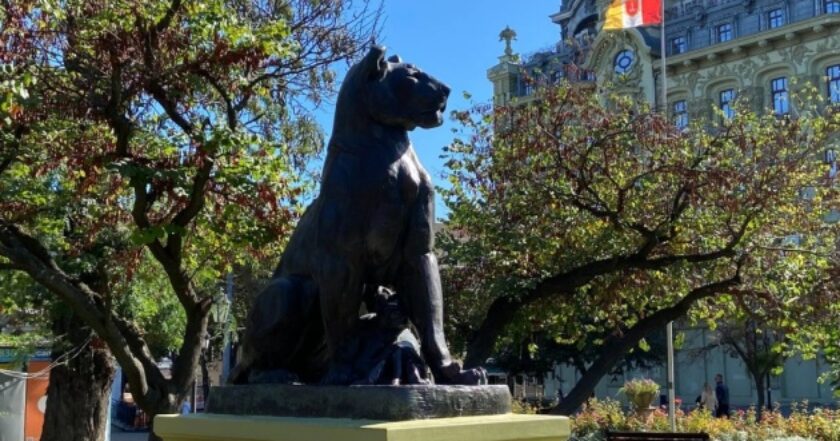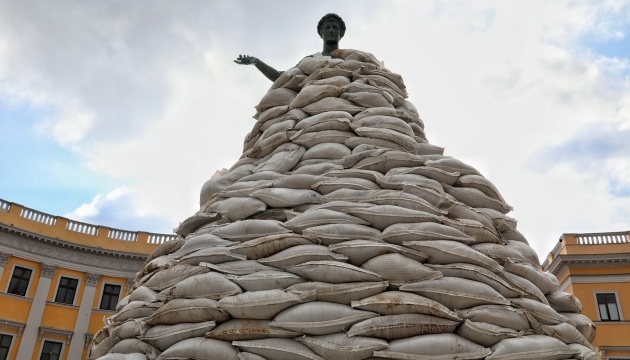"Sand cages" for sculptures: solution protecting Odesa's cultural heritage

Photo: Ukrinform
Odesa's utility services closed the sculpture group Lion and Lioness by Auguste-Nicolas Caïn in special "sand cages" to protect it from russia's rocket attacks, Ukrinform reports.
What is the problem?
Lately, russia has started increasingly using Iranian Shahed-136 drones to shell Ukrainian cities during its full-scale war.
Yurii Ihnat, Ukraine's Air Force Command spokesman, said that the russian federation delivered drones from Iran using IL-76 transport aircraft.
The spokesman suggests that the russians have also established other ways of transporting Iranian drones.
Therefore, at the moment, it's difficult to access the exact number of drones that are in service with the russian army. But, according to Ihnat, we are talking about hundreds.
Over the past week, russia has been massively attacking the cities of Ukraine with these drones. They're challenging to shoot down, and they cause a lot of damage to infrastructure and take civilian lives.
What is the solution?
Odesa's utility services want to protect historical monuments from being destroyed. They decided to shut off the sculptural group Lion and Lioness of Caїn, which is located in the City Garden and consists of figures of a lion, a lioness, and lion cubs, with "sand cages."
How does it work?
"We are installing special protective boxes with sand around the copper sculptures of a lion and a lioness with lion cubs to protect them from damage or destruction by rocket fragments in the event of a possible russian shelling," said one of the employees of the city hall.
One of the two figures, made of copper, has already been hidden in a "sand cage."

Photo: Ukrinform
The monument to Duke of Richelieu, the city's founder, and several other sculptures in Odesa's historic center were also closed off. Workers are erecting protective structures thanks to the support of the cultural departments of the Odesa Regional State Administration and the Odesa City Council.

In addition, Odesa started implementing the project by NGO Museum For Change with the support of the Culture in Emergencies Department of UNESCO's Culture Sector.
The project aims to assist Odesa's cultural institutions in preserving cultural heritage during the war.
As reported, UNESCO and the Museum for Change volunteer project signed a contract to support Odesa's museums, State Archives, and the regional administration's cultural department.
It allocates a grant of USD 98,000 to implement several projects.
On October 4, Ukraine's Minister of Culture and Information Policy, Oleksandr Tkachenko, signed the nomination file to include the historic center of Odesa in the main list of UNESCO's World Cultural Heritage.


















































